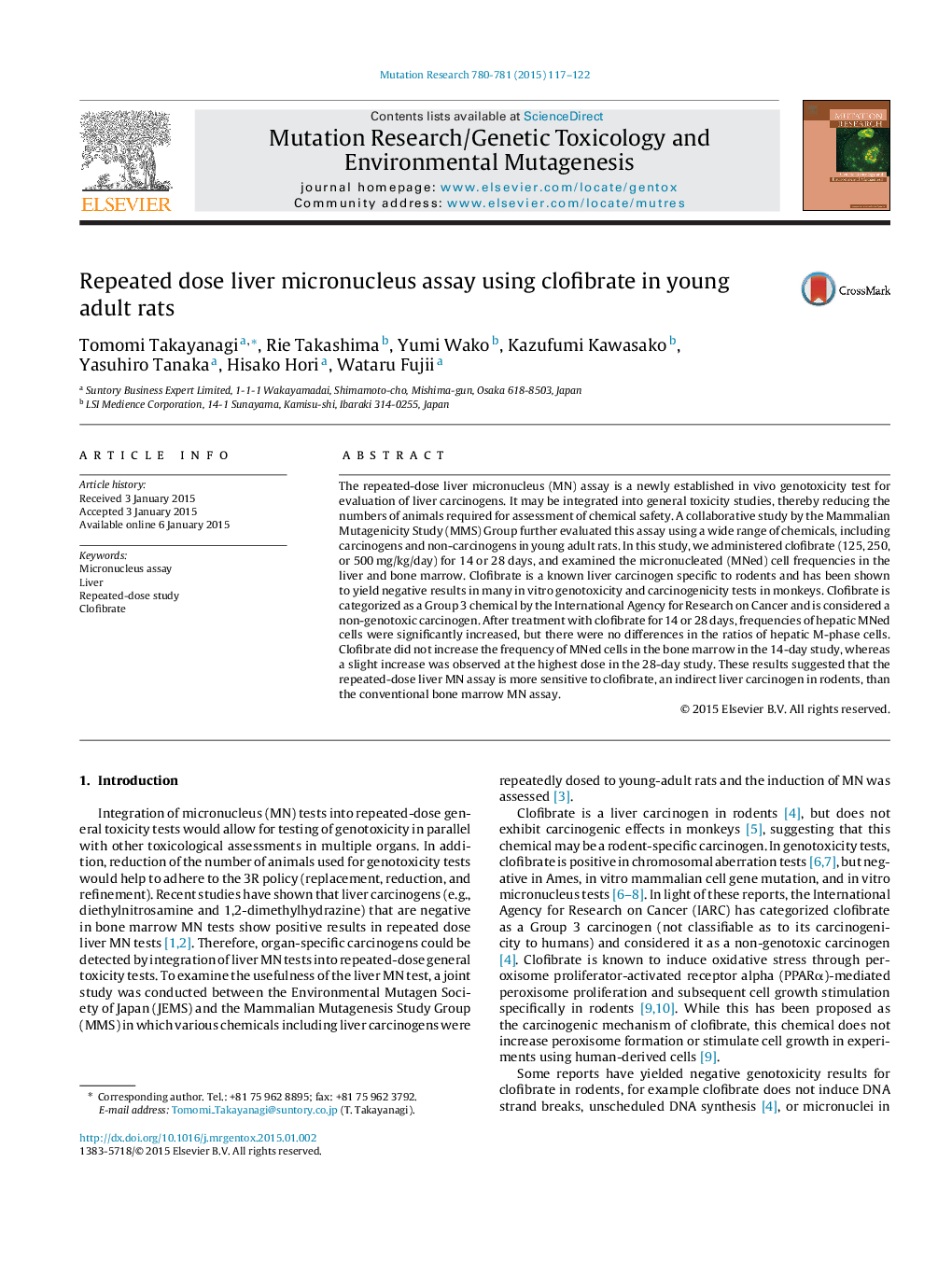| Article ID | Journal | Published Year | Pages | File Type |
|---|---|---|---|---|
| 8456424 | Mutation Research/Genetic Toxicology and Environmental Mutagenesis | 2015 | 6 Pages |
Abstract
The repeated-dose liver micronucleus (MN) assay is a newly established in vivo genotoxicity test for evaluation of liver carcinogens. It may be integrated into general toxicity studies, thereby reducing the numbers of animals required for assessment of chemical safety. A collaborative study by the Mammalian Mutagenicity Study (MMS) Group further evaluated this assay using a wide range of chemicals, including carcinogens and non-carcinogens in young adult rats. In this study, we administered clofibrate (125, 250, or 500Â mg/kg/day) for 14 or 28 days, and examined the micronucleated (MNed) cell frequencies in the liver and bone marrow. Clofibrate is a known liver carcinogen specific to rodents and has been shown to yield negative results in many in vitro genotoxicity and carcinogenicity tests in monkeys. Clofibrate is categorized as a Group 3 chemical by the International Agency for Research on Cancer and is considered a non-genotoxic carcinogen. After treatment with clofibrate for 14 or 28 days, frequencies of hepatic MNed cells were significantly increased, but there were no differences in the ratios of hepatic M-phase cells. Clofibrate did not increase the frequency of MNed cells in the bone marrow in the 14-day study, whereas a slight increase was observed at the highest dose in the 28-day study. These results suggested that the repeated-dose liver MN assay is more sensitive to clofibrate, an indirect liver carcinogen in rodents, than the conventional bone marrow MN assay.
Keywords
Related Topics
Life Sciences
Biochemistry, Genetics and Molecular Biology
Cancer Research
Authors
Tomomi Takayanagi, Rie Takashima, Yumi Wako, Kazufumi Kawasako, Yasuhiro Tanaka, Hisako Hori, Wataru Fujii,
